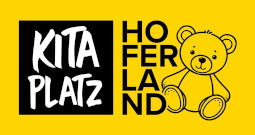Additional Offerings
Movement education according to Pikler and Hengstenberg
Our movement education is based on the principles of Emmi Pikler and Elfriede Hengstenberg. Both emphasize the importance of free, self-determined movement for the healthy physical and mental development of children. Emmi Pikler placed particular emphasis on respectful and attentive observation of the child in order to promote their natural development of movement. She emphasized that children should develop their motor skills at their own pace, without too much external pressure. Elfriede Hengstenberg complemented these approaches by emphasizing the importance of holistic support for the child in movement. She advocated targeted and individualized support that strengthens the child's independence and encourages them to actively explore their environment. Both approaches emphasize respectful guidance and an environment that gives children sufficient freedom to make their own experiences.
Intensive school preparation
We place particular emphasis on good and comprehensive school preparation for our pre-school children. For us, however, this involves much more than the “classic” school preparation with learning letters and numbers.
The pre-school children meet daily at lunchtime in their pre-school group and work on various topics and projects during this time. In recent years, for example, the children have independently organized a cookie sale at Christmas time or rehearsed various plays and performed them for the children and parents of our nursery, entirely according to the children's ideas and interests. Numerous excursions such as visits to the theater and concerts, trips by bus or train, visits to the comic museum, the observatory or behind the scenes at the Hofer Theater are just as much a part of our preschool program as regular trips to the riding stables.
Our pre-school work not only promotes the children's cognitive and (fine) motor skills, but also strengthens their language and social skills in particular, for example by working with others, coordinating and developing ideas together.
In terms of comprehensive school preparation, our daycare center also maintains a good and close cooperation with the surrounding elementary school in the city of Hof as well as with the Montessori school in Berg. For example, there are handover meetings for children starting school and special language support programs (“Vorkurs Deutsch”).


